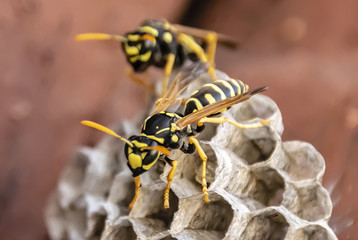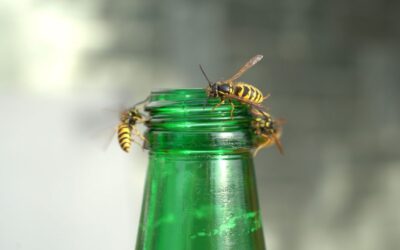Introduction
Bees buzzing around your deck? A hive forming under your eaves? At RECON Pest Services, we handle bee and wasp situations with care and expertise. While these important pollinators deserve respect, they can’t stay where they threaten your family’s safety.
Our bee removal services focus on safe relocation when possible. Honeybees and bumblebees help our Nebraska gardens and crops thrive, so we work with local beekeepers to move beneficial colonies to better locations where they can do their important work.
Sometimes, removal is the only safe option. Aggressive colonies near doorways, play areas, or high-traffic zones put people at risk. We handle these situations quickly and safely, protecting both you and the environment.
Bee and Wasp Pest Control Services
We handle every type of stinging insect that bothers Nebraska properties:
- Honeybee Removal services relocate beneficial colonies when possible. These fuzzy brown bees make honey and pollinate crops, so we work with local beekeepers to move them safely.
- Bumblebee Removal treatments handle these large, gentle bees that nest in ground burrows or wall voids. They’re excellent pollinators but can become defensive near their nests.
- Carpenter Bee Exterminator programs stop these wood-boring bees from damaging your deck, eaves, and outdoor structures. They drill perfectly round holes to lay eggs.
- Yellow Jacket Exterminator services eliminate these aggressive wasps that build paper nests in wall voids, ground holes, and attic spaces. They defend their territory fiercely.
- Paper Wasp Exterminator treatments remove umbrella-shaped nests from under eaves, deck railings, and porch ceilings. These wasps have long legs and narrow waists.
- Hornet Exterminator programs handle Nebraska’s largest wasps that build massive paper nests in trees and under roof overhangs. Their stings are particularly painful.
- Ground Bee Exterminator services target solitary bees that dig individual holes in lawns and garden beds. While mostly harmless, large populations can damage turf.
- Mud Dauber Exterminator treatments remove these solitary wasps that build mud tubes on walls, under eaves, and in garages. They’re usually not aggressive, but their nests are unsightly.
Wasp and Bee Exterminator: Dealing with Different Species
Each stinging insect needs a different approach based on its behavior and nesting habits:
- Honeybees live in large colonies and rarely sting unless threatened. We use specialized equipment to capture the queen and workers for relocation to apiaries.
- Bumblebees nest in small colonies of 50 to 400 individuals. We remove nests carefully and seal entry points to prevent recolonization.
- Carpenter bees are solitary but return to the same nesting sites yearly. We treat galleries with residual dust and fill holes to prevent future boring.
- Yellow jackets become increasingly aggressive as colonies grow through the summer. We locate nest entrances and use targeted treatments during low-activity periods.
- Paper wasps build open nests that are easy to spot and treat. We remove nests during cool morning hours when wasps are less active.
- Hornets build enclosed nests that can house hundreds of wasps. These require professional treatment due to their size and aggressive nature.
- Ground bees emerge in large numbers during spring but are mostly beneficial. We only treat when populations become problematic for lawn use.
Frequently Asked Questions
General Bee and Wasp Control
How quickly can you remove a bee or wasp nest?
Do you relocate bees or just kill them?
Are bee and wasp stings dangerous?
When are bees and wasps most active?
Can I remove a nest myself?
Bee Removal and Relocation
What happens to relocated bees?
How do you know if bees can be relocated?
Will bees come back after removal?
Is bee relocation more expensive than elimination?
Wasp and Hornet Control
What's the difference between bees and wasps?
Why are yellow jackets so aggressive in fall?
Can wasps sting multiple times?
Do wasp nests need to be removed in winter?
Safety and Prevention
How can I avoid getting stung?
What should I do if I find a nest?
How do I prevent bees and wasps from nesting?
Are there natural ways to repel stinging insects?
Why Choose RECON Pest Services for Bee and Wasp Control
RECON understands the difference between beneficial bees and dangerous wasps. We’ve relocated countless honeybee colonies to local apiaries where they continue their important pollination work. We’ve also eliminated aggressive yellow jacket nests that threatened children’s play areas.
Our team uses specialized equipment for safe bee and wasp removal. Protective suits, professional-grade tools, and proper techniques keep both our technicians and your family safe during removal operations.
We work with local beekeepers and environmental groups to relocate beneficial species whenever possible. Learn more about our environmental commitment on our about pest control company page. When elimination is necessary, we use targeted treatments that minimize impact on other beneficial insects.
Our technicians respond quickly to emergency stinging insect situations. Nests near doorways, windows, or play areas can’t wait. We keep emergency slots open for urgent bee and wasp problems that threaten safety.
We guarantee our bee and wasp removal work. If insects return to the same location during our warranty period, we will come back for free. Proper removal and exclusion prevent future nesting problems.
Contact RECON Pest Services
Don’t risk getting stung trying to remove bees or wasps yourself. Call RECON at 402-555-1244 right now for safe, professional removal services across Nebraska.
Found a nest near your front door today? We have emergency appointments available. Want to schedule preventive inspections before stinging insect season? We’ll set up your visits. Questions about those buzzing insects in your yard? Text us photos for identification.
Our stinging insect specialists serve all of Nebraska. From Omaha suburbs to rural farmsteads, we’re equipped for safe bee and wasp removal. Don’t wait until someone gets stung; these insects become more aggressive as their colonies grow.
Get expert help from ourcontact pest control firm team today. No pressure, no obligation. Just safe, professional removal of dangerous stinging insect nests.
Blog
Stay informed about stinging insects with expert advice from our Nebraska specialists. Our blog helps you identify different species and know when to call professionals.
Wasps in Nebraska – 5 Dangerous Pests to Avoid
Wasps can be a real nuisance for homeowners in Nebraska, and with several species buzzing around, it’s no...
How to Treat a Mosquito Bite On Your Eyelid & Treat Mosquitoes in Nebraska
Ouch! Why is my eye so itchy? A mosquito bite on your eyelid can feel like a major annoyance, but don’t...
Delayed Wasp Sting Reactions – Lincoln & Omaha Wasp Control
Ouch, was that a wasp? Have you ever been stung by a wasp and found yourself dealing with a delayed...







